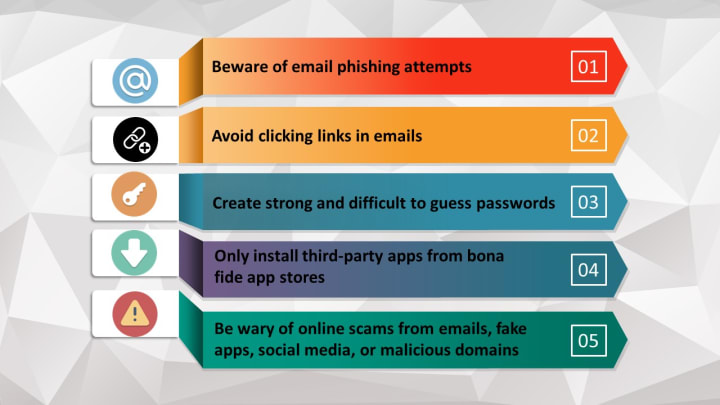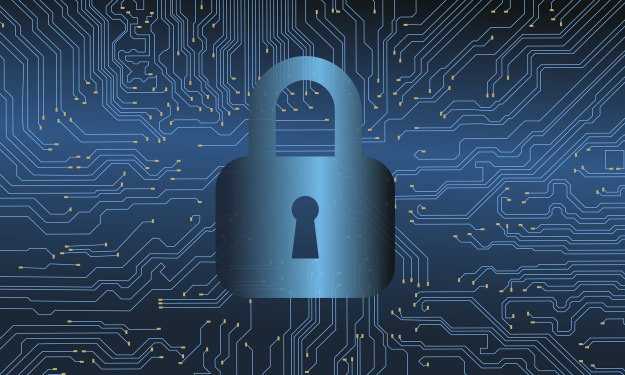Remote Workforce Security Best Practices for Small Businesses Transitioning to Work-From-Home (WFH)
Remote and flexible working arrangements are increasingly becoming part of most companies' cultures.

Remote and flexible working arrangements are what talented workers look for when choosing which businesses offer a work environment amenable to their needs and wants.
Although the WFH trend started over the last ten years, the coronavirus epidemic has exponentially increased the need for establishing safe and sound business remote working solutions.
Companies and employees stand to benefit from a flexible and remote workforce.
However, the challenge then becomes how best to ensure the safety and security of online collaborative and other tools from off-site premises.
Remote work environments do not, generally, have the same safeguards and security controls as office networks.
When employees transition from a secure and trusted office network to working from home, companies face new security risks.
The current workplace environment requires employees to sign into company networks remotely and use cloud-based applications.
This shift can also make businesses more vulnerable to cyber threats and security breaches.
Small companies must establish additional security practices and policies to safeguard company information and individual privacy.
Educate and Train Employees on Basic Security Knowledge

Employees who do not have an IT background might be unaware of some basic security practices. However, when working remotely, employees are the first line of defense when it comes to a company’s cybersecurity.
It is crucial to provide employees with the knowledge they need to protect personal data and company information.
Communicate the importance of avoiding hacking or phishing attempts that are likely to increase in scope as more people work from home.
Make sure remote employees follow the security best practices below, even on their personal devices.
Avoid Public Wi-Fi Networks
If possible, employees should avoid using public Wi-Fi as it presents a significant security risk.
When accessing the Internet from an unsecured public network, there is no firewall between others and you.
When working on the same network as others, your activity and traffic can be picked up by an interested observer.
You must protect your device and data by using a personal hotspot or some other way to encrypt your Internet connection.
Compared to the many security concerns of public Wi-Fi, your own mobile phone Wi-Fi hotspot is much more secure.
Most Android and iPhones today have built-in features for users to use their phone as a hotspot.
Some major carriers may charge a nominal fee that counts against your data unless it is already part of your mobile package.
However, unless you take precautions to keep your hotspot safe, there are still significant security concerns.

To protect your smartphone’s Wi-Fi hotspot:
- Assign a strong password to your hotspot’s access point
- Secure the password with WPA2 hotspot security
- Install a VPN on your smartphone and other connected devices
- Use a unique SSID (service set identifier) that is not easy to guess
- Invest in or update your phone’s antivirus software
Use Work Computer for Work Only
When possible, encourage employees only to use work computers for work purposes. In general, home networks are not as secure as company networks.
They do not have secure passwords and may be configured without encryption, making it easier for hackers to gain access.
In addition, the router or modem employees use at home to access the Internet is likely to be missing the latest updates and security patches.
Businesses take extra precautions with their networks and have the processes and systems in place to identify potentially malicious behavior.
Additional Basic Security Knowledge to Share with Remote Workforce
Some of the below suggestions might sound like things everyone already knows, but this is not always the case.

Just to make sure, communicate the following to your remote workforce:
- Beware of email phishing attempts by watching out for strange requests, misspelled email addresses, and suspicious links
- Avoid clicking links in emails even if they are sent by people they know
- Create strong and difficult to guess passwords
- Only install third-party apps from bona fide app stores
- Be wary of online scams sent through emails, fake apps, social media, or malicious domains
Provide VPN Access to Remote Workers
To secure company data as it moves between employees working remotely and your business core systems, deploy a VPN.
VPN services provide additional security that will:
- Encrypt data transfers
- Mask the location of users
- Hide IP addresses
Most larger companies are already using a virtual private network service in their office.
However, small businesses that are not currently using a VPN should find a provider.
When reading through third-party reviews of VPN companies, be sure to have enough seats for all remote employees.
Provide all remote employees with access to the VPN services and ensure that they use it for all business-related activities.
Use Approved and Secure Cloud Storage Services
The demand for cloud-based solutions continues to increase globally. They include secure data storage as well as entire business processes.
Small businesses should use cloud-based storage as opposed to local storage to ensure the safety of confidential information like health records, financial data, and employee payroll information.
Cloud-based storage is when data is saved on Internet-connected servers on the cloud instead of on local hard drives.
These cloud servers are managed by data center managers to keep the data safe and secure.
Small businesses use cloud storage both for an enhanced level of security and to cut costs.
Cloud storage is less expensive than on-site storage and saves money in disaster recovery situations.
Some of the ways cloud storage vendors secure data include the following functions:
- Multiple levels of intrusion detection
- Advanced firewalls to map packet contents to known security threats and verify content integrity
- Encrypted data to keep it safe from unauthorized users
- Event logging to predict and prevent security breaches
- Physical security of cloud data centers with 24-hour fingerprint locks, monitoring, and armed guards
- Internal firewalls to control who has access to which content to boost security

A vital benefit of cloud storage is file redundancy as part of a business continuity process.
This means that documents and files are copied to different physical servers located far away from each other.
In case of a natural disaster, your small business data might be destroyed in one location but safe in another.
Use Password Management Software
Most security breaches occur when malicious actors get access to required credentials.
Using password management software is an essential solution to remote work security.
Some of the features of password management software include:
- Enacting one-time-use credentials
- Randomly generating unique and strong passwords
- Decreasing the lifespan of a password by automatically rotating passwords
Control and Limit Access Privileges for Remote Workers
Not all employees need access to every piece of content used by a small business. To mitigate security risks, you should limit access privileges based on need.
Setting correct privileges for employees working from home is essential to maintaining a secure environment by keeping:
- Malicious actors from infiltrating your small business network from a single compromised account or machine
- Employees from accessing data they should not have access to and reducing threats from human error
Only top-level executives and others who need it should have unrestricted access.
Employees should only have access to the data they need to complete their work.
When assigning job-specific user-level privileges, consider the following:
- Only IT personnel who maintain systems should have admin access
- Segmenting user privileges reduces the chances of a compromised employee account infecting all your business data
- In addition to limiting permissions, use multi-factor authentication to verify the employee signing in is who they say they are
Stay Updated
Ensure that business software and apps are updated. Also, encourage all employees to upgrade software and apps they are using to the latest version.
Develop Business Continuity Plans
Most major corporations have business continuity and disaster recovery departments set up to plan for what to do in case of a disaster.
Do the same for your small business. Have backup plans for vital business functions and responsibilities to ensure there are contingency plans in place.
If key personnel such as tech support, upper management, security management, and people in other essential roles are unable to perform their jobs, have failsafe roles assigned and set up.
Risky but Worth It
Small businesses that have a workforce transitioning to working from home know there are security risks involved.
However, the benefit of staying in business far outweighs the risks. By putting strong security policies and the right cybersecurity in place, small businesses can remain productive while keeping their data and information safe.
About the Creator
Julie Weishaar
Julie works to grow small businesses, increasing their online visibility by leveraging the latest in internet & video technologies. She specializes in animated video production, custom images, content writing, and SlideShare presentations.






Comments
There are no comments for this story
Be the first to respond and start the conversation.